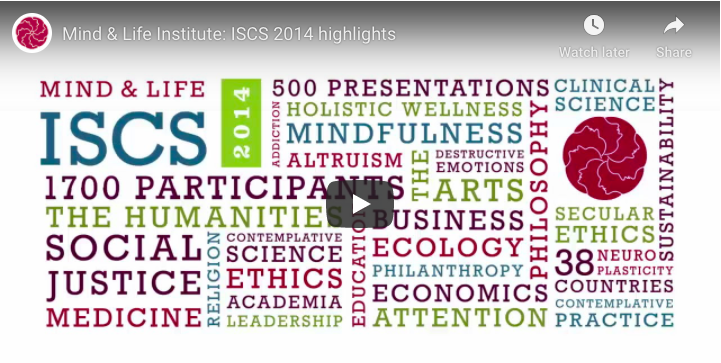Topic Archives:
Concurrent Session 5 – The Cultivation of Emotional Intelligence in Multiple Disciplines: Relevance of Contemplative Pedagogy to University Education
Previous research has indicated the efficacy of mindfulness practices for improving student focus, reducing stress, and regulating emotion in the classroom. However, this workshop demonstrates that optimal student learning involves more than mindfulness by exploring how the additional components of awareness and insight can cultivate emotional intelligence and meaning-making skills through study, contemplation, recognition, and …
Concurrent Session 5 – Yoga in the Public School Setting: Rationale and Research
Children and adolescents are faced with substantial stresses and life challenges that contribute to an increasing burden of mental and physical health conditions and problem behaviors. The existing school curriculum is lacking in instruction that would provide skills of self-regulation, stress management, and emotion regulation. Yoga is a contemplative mind/body practice that combines meditation, mind/body …
Continue reading “Concurrent Session 5 – Yoga in the Public School Setting: Rationale and Research”
Concurrent Session 5 – LifeWorks at Stanford
Two Stanford faculty will describe a new program at Stanford that seeks to integrate contemplative studies into the undergraduate curriculum and attract faculty and students, whether or not they are initially interested in meditation or mindfulness. The program, called LifeWorks, offers its own courses, which blend traditional cognitive learning with mindfulness practices and workshops for …
Continue reading “Concurrent Session 5 – LifeWorks at Stanford”
Concurrent Session 5 – Increasing Emotional and Cognitive Regulation Among Highly Vulnerable Youth: Advancing the Science of Mindfulness Training
Mindfulness training for youth is growing tremendously across the nation; however, few studies rigorously assess its effects. Studies that employ mindfulness training have shown promise in increasing emotional and cognitive regulation among youth, including those who are highly vulnerable. Rigorous controlled trials are vital for increasing our understanding of the efficacy of mindfulness-based interventions for …
Concurrent Session 4 – Challenges in Teaching Secular Compassion Cultivation
Two important secular compassion training programs have been developedat Stanford and Emory Universities. Each of these programs derives largely from the mind-training tradition of Indo-Tibetan Buddhism. It is widely assumed that compassion is a good thing and that, by extension, such programs are therefore good. However, much more systematic attention needs to be directed towards …
Continue reading “Concurrent Session 4 – Challenges in Teaching Secular Compassion Cultivation”
Concurrent Session 4 – Yoga and Mindfulness: Engaging the Undergraduate Learner
Without meaning or purpose, students view higher education and the working world beyond as irrelevant and as overwhelming stressors. Our institutions address academic malaise by creating environments in which engagement can occur. This experiential paper proposes that beyond fostering stimulating environments, educators must teach students how to engage. Through tapping into neuroplasticity, mindfulness, and yoga, …
Continue reading “Concurrent Session 4 – Yoga and Mindfulness: Engaging the Undergraduate Learner”
Concurrent Session 4 – Contemplative Technologies and Liberal Arts and Sciences
What legitimizes contemplative inquiry in the liberal arts and sciences? Is propagation by technological means at odds with the humanizing purposes of close-knit teaching and learning communities? Do the peculiar benefits cultivated by contemplative communities in the liberal arts and sciences continue to serve alumni in their respective professions and leisure? A panel composed of …
Continue reading “Concurrent Session 4 – Contemplative Technologies and Liberal Arts and Sciences”
Concurrent Session 3 – Integration and Engagement: Personal and Professional Practice in the Lab, the Clinic, and Education
In some visions for contemplative studies, considerable importance is given to the integration of personal and professional practice. How might this work in practice, and what challenges and potentials does this entail in the laboratory, the clinic, and other contexts of research and application? Drawing on examples from our research projects and interventions, we offer …
Concurrent Session 3 – Being Mindful About Teaching Mindfulness: Evaluating the Consequences of Peer Instruction
The student-driven promotion of mental wellness across university campuses includes policies restructuring mental health services, conferences encouraging mental wellness, and peers offering one-on-one and group support. This paper will explore the theoretical implications of including mindfulness in these initiatives. Mindfulness-based stress reduction has been efficacious for reducing stress, anxiety, and depression, and for increasing empathy …


